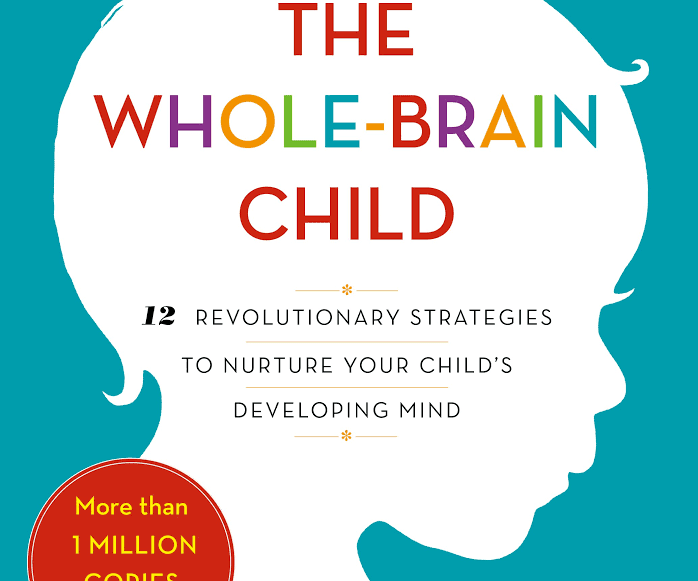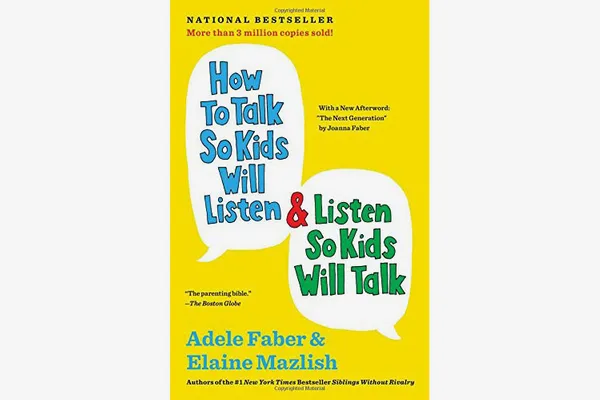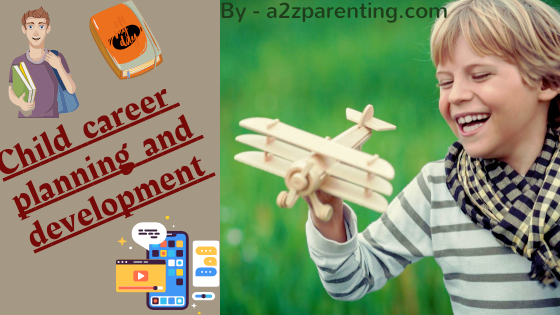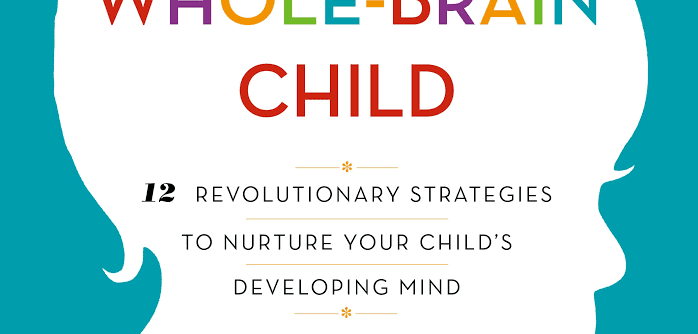Essential Parenting Books Every Parent Must Read
Essential Parenting Books Every Parent Must Read
Parenting books, If they are worth to their content (most aren’t), tend to lead us toward a reckoning with our own parentage. In this way they are more like parenting itself. We want to shape our children into something other than our own image.
A great book for new parents, or anyone looking to improve their parenting skills. When you’re a parent, there are so many things to worry about. But don’t worry – these books has got you covered!
While mentioning about – Essential parenting books every parent must read, I specify about –
Parents have many questions when they first start having kids. These books answers them all! Parenting are an essential books for parents who want to know more about their children. These books covers everything from birth to adulthood.
# There are so many books on parenting out there, but not all of them are worth reading. This one is!
The Whole brain child
All About Parenting books are an easy read that will give you practical advice for raising kids in today’s world. These books covers topics ranging from how to discipline children to how to teach them right from wrong. Gives parents and teachers ideas to get all parts of a healthy child’s brain working together.
If you’re looking for some solid advice on how to raise a child with developing mind, then you need to check out “The whole brain child” by – Daniel J. Siegel and Tina Payne Bryson. The writer turn leading brain science into simple, smart and effective solutions to your child struggles. Bestselling author of mindsight.
The author explain – and make accessible – the new science of how a child’s brain is wired and how it matures. The “upstairs brain,” Which makes decisions and balances emotions is under construction until the mid-twenties. A useful child-rearing resource for the entire family. The author include a fair amount of brain science, but they present it for both adult and child audiences.

Revolutionary strategies to nurture your child developing mind. Survive everyday parenting struggles and help your family thrive. The character of parenting is unmatched in the mortal film of a creature’s life. A parent can be anyone who gives the most pure and unconditional love to another.
A parent would never want evil to happen to their child. It has learned to dodge arrows with its broad white wings and to protect its vulnerable heart by wrapping it in a satin cloth. No human being is faultless. Human beings are human because of their flaws. Even parents are not perfect.
The slippery slope can be difficult to manage when nurturing a pure mind that is susceptible and defenseless to malicious thoughts. Parents often find themselves clueless as various thoughts invade the teething mind. Here is a list of books (many, many books!) from which to draw inspiration while nurturing a little tempest. So follow me, dumplings! But before you dive in, remember a few things:
You are doing what you can. No one can take care of your child as well as you. Do not lose hope and self-respect. you are great. It’s okay to be clueless and disappointed. Parenting is a long learning process. It teaches perseverance and tests patience. Love yourself too. Pat yourself on the back when you make progress. Take a break when you lose all the ends. One step at a time.
When you feel down, look into your child’s eyes and see an ocean of warmth for yourself.
How to talk so kids will listen
This best-selling book – “How to talk so kids will listen” is written by well-known experts Adele Faber and Elaine Mazlish, who specialize in effective communication between parents and their children. This well-loved classic offers lasting insight on how to deal with the problems parents face when raising their children. Recommended by parents all over the world, this book offers practical, sensible and actual solutions to children’s frustration and anger.
The books provides new way of communicating with kids and it’s absolutely fantastic.. This has to be one of the top parenting books ever… The technique shown in the book is very useful to not only interact with kids, but also with our spouses and others.. This is a must read book – One that can stand the test of time.

I’m not into guides, but I must say that these are worth reading. It opened my eyes to some reasons for difficulties and that better understanding is often enough to keep you cool and steer the situation away from tantrum. It actually taught me a few things about myself and my own reactions. I like that it focuses on fostering a good relationship with the child, but is also realistic and very practical in terms of how to handle everyday challenges of raising a determined child.
This book is phenomenal. This book helped parents better understand children, themself and why things sometimes go off the rails. The reference manual for the years ahead.
Raising Your Spirited Child
The initial chapters go into personality traits and how these can be used to work with your child’s tendencies rather than against them. When your child simply with not stop, maybe it is because they are extremely persistent. Or if a walk outside means inspecting every leaf and crack then your child is showing another trait. This sets up the rest of the book well to help you tune your approach based on the tendencies of your child.
The suggested strategies appeal to nerdy analytical side. Have a problem with sudden changes or certain times of the day? Take a step back and look for clues as to why that is happening. Experiment to see if you can make improvements by changing how you start or tweak other factors like sleep, timing or energy levels. “Raising your spirited child” by – Mary Sheedy Kurcinka :- A Guide for Parents Whose Child is More Intense, Sensitive, Perceptive, Persistent, and Energetic.
There is a great balance between abstract and concrete topics. While the earlier parts of the book lay a psychological foundation, the later parts are filled with tools and specifics to help you throughout your days. My favorites’ were around working with your children to get to a common goal. A “yes and” to break away from a screaming no.
Thank you for this fantastic book. Although well suited for parents of children who like to push the limits, likely helpful to any parent who wants a few more tools or to understand their child’s tendencies. I would recommend this book and look forward to reading it again. This book is what all parenting books aspire to be. Full of deep insights about children’s – and parents’ – temperaments, thoughts, emotions, and behaviors, AND full of concrete, helpful suggestions for dealing with challenging situations.

Child career planning and development 2022

All about Child career planning and development 2022
All aspects of an adolescent’s behavior are linked to their wish to achieve, belong and to have control or choices. Although all three are interlinked. Initially as a say about – “Child career planning and development 2021” than it’s includes – achievements, and it’s further illustrated with different case studies and consequently illustrated a specific problems relating to achievements.
It is important that academics and policy makers are able to understand the intricacies behind career planning and its relationship to academic performance and human development. Mostly students follow an unusual approach to setting their career goals. Many a times, driven by the aspirations of the parents, students mix their career plans with education, resulting in no clue of career options.
Some students utilize their time in school and the choice of subjects available to them based on their academic performance to gain career options. This approach often leads to limited options. Still other students begin to think about their career options when their interest is ignited by a high school counselor, teacher, or a person who is supposed to be a role model. It also means being exposed to limited options.
What does child need to achieve ?
Generally as I say about current generation, In average children needs and wants to achieve their own unique identity, physical and cognitive growth, well being and capacity, social and emotional skills and also a level of performance in relation, which combinedly make them to feel successful and that fulfills their potentials as much as possible.
On above of all, towards the end of adolescence, children want to achieve some economic and practical independence and to be increasingly confident as they exercise this. Obviously parents also wants their children to have a sense of achievement and their own agendas may include aspects of their work, past, current and future, aspects of an economic nature, material possessions such as cars and property, holidays, sports, hobbies and of course their own parenting. This can sometime results in conflicting priorities within the family.
There’s a huge amount going on on this simplified scenario. Perhaps it sounds quite intractable but actually, viewing it from a positive psychology perspective, there are many possibilities for helping to improve the situation. Whichever model of adolescent development you base your under- standing upon, certain strong themes leap out Sporting achievement is intrinsic to the whole family’s self-worth and is highly valued.
- Child chosen field of excellence, represents new ground to family and one in which alone has achieved skills and experience.
- Children demonstrated discipline, hard work and resourcefulness in passion for working and achieved some success.
- In quest for excellence child compromised with physical health and well- being
- Children impressed people in specified circle and accessed social and emotional support that has not been available at home
While preparation of modules regarding All about Child career planning and development 2021, Initially focus on building the ambition national practice guidance on early stage works well.
Children entering elementary school today will eventually end up working in an entirely new type of job that does not yet exist. Many of the careers and professions we see in today’s job market didn’t even exist 10, or even 5 years ago. Due to rapid advances in robotics, driverless transportation, artificial intelligence, biotechnology, advanced materials and genomics, it is about to change and grow rapidly.
Be prepared for the possibility that they don’t have much to say preliminary and if so leave it and return to a later date. You can rest assured that a subject of this nature will register with them but they may need time, days, weeks or even months before they have thought it through enough to have much to say. All of the models of adolescents developments are useful and relevant for understanding these younger situations. I have italicized key points from different theories within the case studies.
For better understanding, parents try to think about your own teenager’s and their priorities in term of achievement and t hen think about their. How much, if any, overlap is there
Defining key Indicators – A major shortcoming of our policy making process has been that relevant indicators have not been properly defined for assessing outcomes related to development.
The pace of physical development is very rapid in the prenatal period and the first 6 months after birth. From 7-8 months after birth, the pace of physical development starts slowing down and continues at a uniform rate for about 12 years. At the age of 12 to 15/16, the pace of physical development once again accelerates.
Psychologists have called this Puberty Growth Spurt. After this, there is a slowdown in the pace of physical development of the children till the attainment of full maturity. At this stage, their physical development reaches the height that it maintains till old age. The weight just keeps on increasing.
How do I plan my child’s career? What is career planning and development?
Why is career important for kids? What are the areas of career development?
Career planning, Career development, What is career planning ?, Career plans example, Career management.
Educational experts provide assessment and recommendations to improve curriculum planning, individual lessons, and teaching methods at one or more grade levels. They also help coordinate and communicate expectations and progress between students’ parents/guardians, guidance counselors and teachers.
There are many job prospects with any chosen career but students are not well aware of these opportunities. For example, an engineering career can lead to becoming a scientist, product manager, designer or an entrepreneur. The primary reason for this chaos is that students are being directed through their schooling to fit into an education system, not to think critically and plan their careers. When in school, students’ aspirations may differ. It may not be possible for them to pinpoint a particular career.
Child career planning
- Talk to your child about their values and what is important to them in a career – This will help them narrow down their options and focus on a career that is in line with their personal beliefs.
- Introduce your child to different cultures and perspectives – This will help them become more well-rounded and adaptable, which are valuable qualities in any career.
- Be a role model for your child – Show them what it means to be a hard worker, a good communicator and a team player.
- Help your child develop their skills and knowledge – This may include encouraging them to participate in extracurricular activities, participate in internships, or volunteer their time.
- Be patient and understanding – Career planning takes time and effort. Don’t be discouraged if your child’s plans change or they don’t know what they want to do right away. Just keep providing them with support and guidance, and they will eventually find their way.
It’s important to remember that career planning is an ongoing process. Your child’s interests and goals may change as they get older, so be prepared to adapt your plans accordingly. The most important thing is to provide your child with the support and guidance they need to make informed decisions about their future career.
Here are some additional tips :-
- Understand your child’s interests and strengths – What are they passionate about? What are they good at? What do they like to do in their spare time? Once you have a good understanding of your child’s interests and strengths, you can start exploring career options that suit them
- Encourage your child to explore various career options – There are many different careers out there, and it’s important for your child to explore their options and find something they’re really interested in. You can help by talking to them about different careers, taking them to career fairs, and meeting people in different occupations. In doing so by encouraging them to get involved can help them.
- Teach your child the importance of setting goals – Setting goals and planning ahead are essential aspects of career planning. Help your child set some short-term and long-term goals for their career, and then help them develop a plan to achieve those goals.
- Provide exposure to the corporate world – If possible, try to give your child some exposure to the corporate world. This could include taking them on a job with you, having them intern at a company, or connecting them with people working in different industries. This will help them understand what it is like to work in a professional setting and make informed career decisions.
- Support your child’s study area – If your child decides on a particular area of study, be supportive and help them achieve their educational goals. This may include helping them pay for tuition, providing them with study materials, or simply being there to provide encouragement.
Many students want to cure cancer, fight hunger or reduce pollution; They dream of designing vehicles, studying the universe, starting their own company and/or serving humanity. Each of these ambitions is valid, valuable, and flows logically from education based on aptitude and personality type.
Ironically, most of their aspirations get bogged down in educational goals and end up on a career path that may not be the most suitable.
For example, an engineer, a medical professional, or a member of a research team can do this to cure cancer. One should not have all these degrees, but should have a specific career path based on merit and personality.
We all know that it becomes easier to achieve career goals if one makes a career plan with well defined tasks. Furthermore, I have found that if students plan their careers based on talent, they achieve success on time, be happy and adapt to challenges in the world of work.
Remember, career planning and development for children should be approached with care and flexibility, considering their interests, passions, and strengths while allowing room for exploration and growth.
How to deal with a lying manipulative child

How to deal with a lying manipulative child
While saying about Natural consequences for lying child and resolutions or how to deal with a lying manipulative child – Do not lie to the child. If parents fight or debate among themselves. then most children have an impact. Child feels insecurity in themselves. It is not fully developed. Children whose development is healthy is a good development in child.
Situation during lack of parenting
Children lie, This is a truth which every parent has to accept. In this too, the biggest thing is that children are not encouraged to lie, but still this evil is brought in them. This lying habit also makes parents very worried.
An even greater concern is created when they lie repeatedly and for no reason. Due to this habit of children, many times parents stop trusting them and children are under suspicion. Once this lying cycle starts, it becomes very difficult to stop it.
Before we get into the depth of how parents should deal with this situation, We need to know why children lie. There can be many reasons for this. In medical parlance, the habit of repeated lying in children can be caused by few types of disorder.
Certainty and illusions
They say that there are no powers of lies and that it hides lies, but for some time, there is a dependence on the fact that it is a lie because it can be hidden when it is lied to hide some small mistake, but when a particular is deceived. If you are lied to give, then it does not hide for long.
It is said that the age of lies is not much, But few kids stood on lies by making excuses to hide the truth, but the real joy comes when comes to know who is being lied to and that even without knowing the lies of another one without any conversation.
Why Do Children Lie ? Understanding Child Behavior & How to Respond ?
See the extent of his lies by making excuses, the child who lies is realizing that the particular we are lying is stupid but when the other one comes to know the truth and he sees the potential of lying. They starts slowly destroying.
One aspect of lies is that, when we lie to someone and when we realize this, then before that realization, the other one would have left us to trust on and we surrendered. So that trust is not completely back ever.
Society has provided some moral norms to make the social system run in an orderly manner, in which a very important morality is related to speaking the truth.
Keeping in mind the human nature, it can be said that according to his convenience, one does not desist from lying, which gives him relief, but on a large scale other members have to pay the price, so there is a difference between them.
This proverb is popular and propagated that ‘there is no greater austerity (penance) than telling the truth and there is no greater sin than telling a lie’. Penance itself is a very difficult human activity, in which physical facilities have to be completely abandoned.
To completely give up physical comforts is a kind of ‘tapa’ and in the austerity of such tendency, speaking the truth is situated at the top, because to speak the truth means to put the facts as they are, without worrying about one’s own facilities, in the form as which they exist.
This does not correspond to human nature in general, because human is not only the creator of the social system himself, but also by nature a little greedy, lazy and hoarding. Keeping this in mind, it can be said that according to his facilities, he keeps on manipulating the reality.
How to Handle Your Child’s Lying at Every Age
If there is a habit of telling lies or twisting things, then far from winning trust, this one habit brings with you a thousand troubles. Pretending not to do homework, reading comics hidden in course books during exam days, exaggerating the price of a gadget, praising someone or posting anything on social media to get likes.
There is no end to the lies told every day. But why do we become liars? Painter, curator and associate professor says, ‘If someone tells a liar, we feel bad. But why does anyone become a liar? This is a very interesting topic. Actually, our biggest weakness is our desire to be loved and appreciated by others. For this people easily tell the biggest lie.
There may be remorse later, but it is in our nature to be a liar.’ It is this desire that weighs heavily. We also get stressed. You must have also noticed that after telling one lie, we have to tell many more lies about it. You also have to remember what was said last time, which lie should be adopted now to save that last lie.
Children’s childhood is very innocent. In such a situation, Tackle them in such ways :-
Do not punish for every mistake
Appreciate them for telling the truth
Support in trouble
How to positively respond to a child’s defiance and lying ?
In the post-modern society changed by today’s fast song, the thinking of man has become limited only to himself. Morality has become for him only an object of preaching to others. He resorts to all kinds of deceit to benefit himself.
A very important feature under human behavior in daily life is related to speaking the truth, so that the social system and human relations can be continuously progressive, but at one time it is rare to imagine the incomparable sacrifice of King Harishchandra, who performed his truthfulness.
Such actual practice is now impossible
To brief in detailed, Let’s assume – ‘A’ is quite popular on social media. Whenever he puts a post related to his working, new movies or any new technology or information, there is a flurry of like-comments. But ‘B’, who is studying in his class, does not like ‘A’. He clearly says that he does not trust ‘A’ at all, because what he shows is not what he actually is.
As a moral – Even after having proof, we are not supposed to trust anyone completely and sometimes we trust someone in a hurry. Why does this happen? Responding to this question, renowned psychologist says, ‘Trust someone, but not by his words, but by his behavior or actions.
FAQ’s
Q1: How can I tell if my child is lying or being manipulative? A: Look for inconsistencies in their stories, changes in body language, and avoidance of eye contact. Trust your instincts and pay attention to patterns of behavior.
Q2: Why might a child resort to lying and manipulation? A: Children may lie or manipulate to avoid consequences, gain attention or control, seek approval, or protect themselves from perceived threats.
Q3: What should I do if I catch my child lying or manipulating? A: Stay calm and avoid reacting impulsively. Address the behavior calmly, and let your child know that honesty is important to you. Discuss the consequences of lying and encourage open communication.
Q4: How can I encourage honesty in my child? A: Create a safe and non-judgmental environment where your child feels comfortable sharing their thoughts and feelings. Praise honesty and reinforce positive behaviors.
Q5: What if my child continues to lie or manipulate despite discussions? A: Consistently address the behavior and consequences. Seek professional guidance from a therapist or counselor to understand underlying issues and develop strategies for improvement.
Q6: Are there any red flags that indicate a deeper problem? A: If lying and manipulation become frequent and excessive, and if your child’s behavior affects their relationships or school performance, consider seeking professional help.
Q7: How can I teach my child about the importance of trust and integrity? A: Lead by example and demonstrate honesty in your own actions. Have conversations about trust, integrity, and the impact of lying on relationships and self-esteem.
Q8: Could there be underlying issues causing my child’s behavior? A: Yes, certain factors like anxiety, low self-esteem, or past experiences might contribute to lying and manipulation. A professional can help identify and address these issues.
Q9: Should I confront my child about past lies, or focus on moving forward? A: While it’s important to address past lies, focus on the present and future. Encourage positive change and offer support in building better habits.
Q10: How can I set appropriate consequences for lying and manipulation? A: Consequences should be fair, age-appropriate, and related to the behavior. Ensure they understand the link between their actions and the consequences.
Q11: Is it okay to express disappointment in my child’s behavior? A: It’s natural to feel disappointed, but try to avoid excessive shaming or guilt-tripping. Express your feelings calmly and emphasize your belief in their ability to change.
Q12: Can family therapy be helpful in dealing with lying and manipulation? A: Yes, family therapy can provide a safe space to address issues, improve communication, and strengthen relationships within the family.
Remember, the goal is to teach children the importance of honesty and integrity while maintaining a loving and supportive parent-child relationship. Focus on positive reinforcement, open communication, and fostering trust with your child as you address and resolve lying behavior. Patience, empathy, and consistent guidance are essential in helping a lying and manipulative child develop more positive and honest behavior. Professional support can be beneficial in understanding and addressing the underlying causes of the behavior.
Adapt Stubborn Children to Improve
Adapt Stubborn Children to Improve
Let’s know the tips to adapt stubborn (mulish) children to improve. It is said that parents are the first teacher of the child. The child’s most time passes along with his parents and in the childhood, whatever the child learns, he learns from his parents only.
In this way, every parent wants that they give good care to their child and put a good ritual in them. Sometimes, when a child receives a complaint from the school and neighbors, people first raise their finger on the parents saying that the child’s parents have given the same rituals as the child is doing the same.
Although every parent gives good education to his child, but sometimes the child becomes very stubborn in nature and as soon as he is older, his temperament changes rapidly. If your child is mulish or you are seeing some different changes in his nature then know how to improve your child’s behavior.
Kinds of stubborn child
Children who have a habit of stubbornness, they repeatedly ask questions about everything, they are very intelligent and creative. They need that everyone listen to them and pay attention to them, they are very self-reliant. They can throw tantrums again and again and they like to lead and they try to bully others.
Do’s and Don’t with stubborn child –
Do’s
Be nice to behave
When the child does vomit-direct action, do not take away all your anger by knocking him or scolding him. At that time you may find it the most effective way to improve your child but it has a bad effect on the child. It is settled in his gentle mind that whenever he react, he will be punished and he remains too stubborn. Therefore, be lovingly with your child.
Become a role model and be friendly
Take care of the child’s likes and dislikes. Take out some time to play with your child and try to gain some knowledge regarding the field of interest. This will keep the baby closer to you and whenever you insist on it, you can easily explain it.
Teach your child something new everyday. If you are very busy, then take time out for the child at the end of the week. Never let the child feel lonely. When you take care of him, the child will find himself close to you and if he/she learn something wrong then you can easily explain it.
Surprise the child
Most children become more irritable due to some reason. Occasionally, due to lack of time with parents, they consider themselves to be more neglected in their home, due to which their behavior changes.
Try to appreciate for his/her good performance in the school.
Sometime try to bring the things which they wants and try to take them out with you as for shopping, movie, park, dinner and walk etc. At every moment, let them realize that parents have eyesight on every activity. Always try not to miss the opportunity to compliment them.
Handling stubborn children is not an easy task, in which case if you do not find a solution quickly then even a small thing can become a big struggle every day. You must have learned a lot about how to control the behavior of a stubborn child, but every day is a new challenge.
Disciplining a stubborn child may not be the best solution in all cases, finding an alternative solution to it may be more effective.
Don’t
Avoid Arguing
Stubborn kids are always ready to argue so you don’t have to give them this opportunity. Instead listen to your child. When you start listening to him, he will also try to pay attention to you.
Don’t Shout
It is very important for parents that they should not shout at their children and if the children are stubborn then they should not do so at all. Your kids won’t make too much noise when you’re calm and you’ll be able to tell them the difference between right and wrong.
Psychology of stubborn children
If your child is very stubborn, first understand why he is so and what is the thing that is making him so stubborn. The determination of the child is a different matter and stubbornness is different. Determination is defined as ‘strong motive’ while being stubborn is ‘refusal to change thought, behavior and external pressure‘.
Persistence in children can be genetic or they can learn behavior by observing others. This can be adapted to suit this behavior in your child so that your child’s personality may be multifaceted in future.
Stubborn behavior can occur at any age – Childhood, or adolescence and this behavior can last until the age of an adult. It is important for you as a parent to handle your children in ways that do not put too much pressure on both of you and also help change his stubborn behavior.
Way’s to Handle stubborn children
Keep the peaceful environment at home
Make sure that your home is a place where your child feels happy, comfortable and safe at all times. Be polite to everyone in the house, especially to your spouse because children learn by watching you. They imitate what they see, so it is necessary that you keep peace and do not use argument and insulting words in front of the child.
Create and follow proper routine
Staying regular on a weekly routine with daily can improve your child’s behavior as well as performance in school. Pay attention to the baby’s bedtime and it should be such that your child gets plenty of rest. Children between 3 and 12 years of age may have behavioral problems due to fatigue and lack of sleep.
Make your way of talking effective
If Stubborn children ask for something, it is difficult for them to hear ‘no’. So instead of being rude try to explain them with love. For example, if your child insists on listening to two stories at bedtime, give him the option to explain that he can hear a story today and a story he can hear tomorrow.
Set rules, penalties and rewards
Stubborn children need rules so set boundaries and clearly state your expectations in a family meeting. Ask your child its outcome as well as their perspective on each. Continuity is important, but there should be no rigidity at all.
It is also important to be gentle and generous at times, especially when you are on vacation or on occasions, when your child exhibits exemplary behavior. This shows them that following rules can be rewarded and its purpose is not harsh at all.
Assume practically before reacting –
Try placing yourself at the child’s place Look at any problem from the child’s point of view and try to understand why he is behaving like this. If you have promised him that you will take him for a walk in the park but perhaps you have not done so due to bad weather, then you will have to try to explain to him why it is not possible to fulfill the promise.
Your child will only see that you have broken the promise you made to him, but if you explain to him why you cannot go out and schedule another day to go out, then you can easily handle the situation.
Encourage positive behavior
Set an example from your behavior and demonstrate a positive attitude at all times. If you mostly use words like ‘no’, ‘can’t’, or ‘won’t’, your child is likely to do the same. Seeing the stubborn nature of your child from the point of view of improving his behavior rather than being negative and speaking randomly.
You can play a game of questions to the child in which he can answer by saying yes or no to the answer. Formulate your questions in such a way that their answers are mostly ‘yes’. This gives the message that the child listened to you and accepted it.
Prioritize child a choice and value his selection
Asking the child what he wants to do can boost his stubbornness. Instead of doing this, you give him two options and give him the freedom to choose.
With this, your child will feel his own right over his life and can take any decision he wants freely. If you want your child not to be confused then you limit your choices and ask him to choose only one of two or three options.
For example – If you want your child to clean his room himself, instead of asking him ‘where do you want to start?’, Ask your child to clean the bed or cupboard in the room first.
Make a good connection and bonding
Do not force the child to do what he does not want to do. By this the child can rebel against your words and he can insist on doing what he should not do. If you want your child to sit down doing his homework instead of watching TV, then try watching TV with the child for a while.
This will bring a sense of friendship in relation to both of you and after a while you can ask him if he will do his homework now and you take a book near him and start reading or do some other work. He will start reading after seeing you.
Distract attention –
There may be some situations in which you and your child do not agree with each other, for example a car seat. If the decision to go out does not align with you and your child’s wishes.
Distract them by telling them where you are going rather than how you are going. If this results in anger or resentment, then try to play the game in it too, by scheduling it or by involving other siblings as well.
Do not argue –
Stubborn children are always ready for arguments so do not give them an opportunity. Always listen to your child comfortably and turn it into a conversation rather than an argument. When you show your child that you are ready to listen to his or her side, there is an increased chance that he / she will be ready to listen to you.
Understand your Children’s mind
Sometimes children insist on getting attention from their parents. Maybe something is bothering your child and he doesn’t know how to talk to you. Here you should understand the actions of your children by seeing them. Sit quietly and talk to your child.
It is not that much wrong for small child to be stubborn, but it is wrong to insist on more to talk. This will have a bad effect on the future of the child as well. As day by day passed away, this habit will be included in his behavior. Further the child will become habitual.
To avoid this, parents should try to improve this habit in time. Getting the right lessons at the right time can shape your child’s future and make him a good person.
Don’t Shout
Psychology of stubborn children
If your child is very stubborn, first understand why he is so and what is the thing that is making him so stubborn. The determination of the child is a different matter and stubbornness is different. Determination is defined as ‘strong motive’ while being stubborn is ‘refusal to change thought, behavior and external pressure‘.
Persistence in children can be genetic or they can learn behavior by observing others. This can be adapted to suit this behavior in your child so that your child’s personality may be multifaceted in future.
Stubborn behavior can occur at any age – Childhood, or adolescence and this behavior can last until the age of an adult. It is important for you as a parent to handle your children in ways that do not put too much pressure on both of you and also help change his stubborn behavior.
Way’s to Handle stubborn children
Keep the peaceful environment at home
Make sure that your home is a place where your child feels happy, comfortable and safe at all times. Be polite to everyone in the house, especially to your spouse because children learn by watching you. They imitate what they see, so it is necessary that you keep peace and do not use argument and insulting words in front of the child.
Create and follow proper routine
Staying regular on a weekly routine with daily can improve your child’s behavior as well as performance in school. Pay attention to the baby’s bedtime and it should be such that your child gets plenty of rest. Children between 3 and 12 years of age may have behavioral problems due to fatigue and lack of sleep.
Make your way of talking effective
If Stubborn children ask for something, it is difficult for them to hear ‘no’. So instead of being rude try to explain them with love. For example, if your child insists on listening to two stories at bedtime, give him the option to explain that he can hear a story today and a story he can hear tomorrow.
Set rules, penalties and rewards
Stubborn children need rules so set boundaries and clearly state your expectations in a family meeting. Ask your child its outcome as well as their perspective on each. Continuity is important, but there should be no rigidity at all.
It is also important to be gentle and generous at times, especially when you are on vacation or on occasions, when your child exhibits exemplary behavior. This shows them that following rules can be rewarded and its purpose is not harsh at all.
Assume practically before reacting –
Try placing yourself at the child’s place Look at any problem from the child’s point of view and try to understand why he is behaving like this. If you have promised him that you will take him for a walk in the park but perhaps you have not done so due to bad weather, then you will have to try to explain to him why it is not possible to fulfill the promise.
Your child will only see that you have broken the promise you made to him, but if you explain to him why you cannot go out and schedule another day to go out, then you can easily handle the situation.
Encourage positive behavior
Set an example from your behavior and demonstrate a positive attitude at all times. If you mostly use words like ‘no’, ‘can’t’, or ‘won’t’, your child is likely to do the same. Seeing the stubborn nature of your child from the point of view of improving his behavior rather than being negative and speaking randomly.
You can play a game of questions to the child in which he can answer by saying yes or no to the answer. Formulate your questions in such a way that their answers are mostly ‘yes’. This gives the message that the child listened to you and accepted it.
Prioritize child a choice and value his selection
Asking the child what he wants to do can boost his stubbornness. Instead of doing this, you give him two options and give him the freedom to choose.
With this, your child will feel his own right over his life and can take any decision he wants freely. If you want your child not to be confused then you limit your choices and ask him to choose only one of two or three options.
For example – If you want your child to clean his room himself, instead of asking him ‘where do you want to start?’, Ask your child to clean the bed or cupboard in the room first.
Make a good connection and bonding
Do not force the child to do what he does not want to do. By this the child can rebel against your words and he can insist on doing what he should not do. If you want your child to sit down doing his homework instead of watching TV, then try watching TV with the child for a while.
This will bring a sense of friendship in relation to both of you and after a while you can ask him if he will do his homework now and you take a book near him and start reading or do some other work. He will start reading after seeing you.
Distract attention –
There may be some situations in which you and your child do not agree with each other, for example a car seat. If the decision to go out does not align with you and your child’s wishes.
Distract them by telling them where you are going rather than how you are going. If this results in anger or resentment, then try to play the game in it too, by scheduling it or by involving other siblings as well.
Do not argue –
Stubborn children are always ready for arguments so do not give them an opportunity. Always listen to your child comfortably and turn it into a conversation rather than an argument. When you show your child that you are ready to listen to his or her side, there is an increased chance that he / she will be ready to listen to you.
Understand your Children’s mind
Resilience, Flexibility, Adaptability, Parenting strategies, Understanding stubbornness, Effective communication, Patience, Empathy, Positive reinforcement, Setting boundaries, Problem-solving skills, Emotional intelligence, Encouragement, Consistency, Role modeling, Open-mindedness, Growth mindset, Creative solutions, Supportive environment,
Parent child relationship building 2022
Parent child relationship building 2022
Becoming parents is a very beautiful feeling. Generally as a couple becomes parents, They starts to feel like a completion of life. But in real terms, it’s not the life completion, this is the next stage of life. It is a new beginning and responsibilities also increases. After becoming a parent, a new challenge is to become a good parent and giving a best up-bringing to their child.
While developing a relationship, then we need to go through with all aspects in detail. In depth it will help you as bonding and values of Parent child relationship building 2022. The relationship we have with our parents, siblings and extended family are life long. Foundation for our development and learning also contribute to our till now well-being.
Families are where we make our first relationships and develop a sense of self. Rather it is through the learning about relationship and oneself child develops resilience. Parents need to build-up strong bonding with kids, than only kids feel valued. Parents need to make awareness about good or bad behave, treat or touch. While raising up, strengthen them in accordance to the society and life up-downs.
Effects of parental relationship on child
An untold distance between a parent and child has vanished away in today’s time. Today’s parents like to call themselves children’s friends. They want children to share everything with them, there is no distance between them.
If friendly relations between children and parents remain in a circle, then it will not break. But it doesn’t mean that, Parents didn’t know about when the children cross the limits.
Practical Assessment
12 year old son’s parents came to doctor almost crying. Their son studies in seventh grade in a renowned school. Single child From the beginning, he met every need. His father is a Businessman. At the behest of his son, he took a big car, took Plasma TV.
A year when mother was scolding for low grades in sixth, he raised his hand on the mother. This is not the first time that – son has raised his hands on mother or father. Earlier he used to do this when not taking to cinema, not feeding pizza. But on the first scolding of the law, he abused the mother and killed her.
Resolving Strategy
Child psychologist says that almost fifteen parents a month bring the same problem. She believes that the day child first raises hand over the parents, it is very important to stop it. Even if it is for a minor thing like stubbornness. As a result, now a days children are not growing like a garden bud, but are growing like a non-sensitized machine. Those who get higher education will one day go abroad.
They usually send check, money and gifts to their parents, and they themselves may not be able to come. Because during childhood they didn’t realize sensation and fragrance of relationship. Always a conflict and contradiction between the concept learned in childhood and surroundings. He accepts and understood the result of the conflict as his concept and reflects in his behavior.
Importance of parent child relationship building 2022
In growing age, children have school friends, family, playground companions etc. You let them know the right and wrong relationship. How is your relationship with your child, it affects your child’s health. In a study, we found that the effect of growing child in a up-scale family develop good physical health only.
On ground survey specifies – As good relationship may necessary to inspire daily activity. Studies show that if the child and parent relation is stressful, then there is no control over bad habits. Instead of such a proper diet, children prefer to eat more sugar or more oil. They also become irregular in sleeping and other everyday activities. It is important to have a healthy lifestyle and social, emotional development in children for a longer life.
Few research says that the effect of a good relationship between parents and children in financially weak homes increases their health. With the increasing age of the child, there is no negative impact on them due to low socio-economic level. Parents with less educated and weaker economic status take the help of constructive dialogue rather than threatening children or forcibly obeying, this increases the warmth in their relationships.
Parents also need to explain them that new relationships will be created in the journey of life, old ones will be exhausted, there is a lot of effort to make a lasting relationship with someone. You need to be careful in regard of trust level and on whom as well as till which extend child can rely-on.
Unhealthy relationship between parents and child
A new change is being seen in the society that the attachment of children with parents in family are ending at a very young age. Children want money and facilities from parents but do not tolerate their interference in their lives. Some children are so outspoken that they tell parents in very few words that they do not like any kind of restraint.
Seeing the problems reaching the counselors in schools, it is found that such behavior is becoming common in children from eighth to twelfth grade. In such a situation, parents are upset and resort to counselors. According to experts, today’s child has neither endurance nor attachment to parents.
The biggest reason for this is the inability of parents to fulfill their responsibilities towards children.
Parents think that earning money for the future of their child and putting them in good school, fully facilitating them and fulfilling their wishes – completes their responsibilities. But it is not so. In this way, feelings begin to dissipate inside the child and he also starts living a mechanical life. He likes to be with friends rather than family.
In the teen age, children have started accepting friends as the world. According to survey, mainly parents are so busy and always so tired that they are unable to pay attention to the children, trying to compensate for their emotional needs with money. In this endeavor, the child gradually begins to relate to him only as much as his needs are fulfilled and starts connecting his feelings with friends.
Experts Advisory
Many times its ill effects also emerge. Many parents are taking the advice of experts regarding behavior change in children. According to neuro psychologist, such problems are becoming common in teenagers. She advises parents to take the children out of the mechanical life and bring them into the world of emotions so that it can increase their attachment and respect for the family.
In the changing times, the responsibilities of the parents have doubled but the parents are not able to fulfill them. At the age when children are definitely with them, they are unable to support them and they later regret it. As much as the need to earn money, the need is to give children a feeling of belonging is also required.
Today’s child is getting away from parents at an early age and is making friends his own world because his parents only think of making money. Parents have to understand that money cannot raise children, rather they need to give quality time, to support them in their happiness and troubles.
Strengthen relationship of parents and child
While mentioning about parent child relationship building 2022. The simple and easy elaborates or belongs to time immemorial, efforts to make the relationship between parents and children. Ideals are seen many times. Taking care of teenage child is a big challenge for parents. We can also termed it as a art in which they did not get training.
I have done a lot’s of research and gone through with many cases, as well as with many surveys. Because many of the parents are worried about that how to understand fully and deeply the mentality of today’s youth. While developing or parenting of pre-teenager is not so tough.
During the child growth – (points to remember)
Along with physical growth (health and height) few other implication take place as – cerebral, social, spiritual and emotional. Most important at arise towards teen expressing your delight at verbal skills. I have written many articles on child upbringing.
Again, while developing a child – the importance of parenting outcomes is must as – I like to mention few useful tactics, which may help parents in understanding about – How to give children moral values, how to raise them, maintain discipline and courtesy etc. With the changing lifestyles of today, children are also changing.
Nowadays, the innocence of children is lost somewhere, it may be due to parents being more busy in their work, excessive pressure on children to compete in studies, more use of mobiles etc. This can also be due to the increasing age of the children and the gradual distance between the parents such as parents spending less time with the children, shouting at them repeatedly or bullying them and Impose one’s decision.
As parents, it is very important to understand that in this growing age, there is a need not be away from children but to become their friend. This is the age when children need their friends the most, but how to become friends of their children? For this, the changes that bring in some ways or behavior are, to understand them and adopt them as become friends of your children.
Initially, we need to get attached with them like a friend and we also need to stop scolding them every time. This rude, impolite, abrupt and arrogant Behavior generates a distance in every relationship. As the child grows up one need to trust them rather than doubting on them. If there is any kind of doubt then finish it instantly. Otherwise skepticism arises, which has no end.
We need to talk directly and openly to child regarding any kind of apprehension in our mind. We need to make a bonding of trust-worthy and confident. Parents needs to have a healthy discussion with children. Parents need to educate them about the life’s best and worst part and terms. Growing up Child can easily know that their parents or guardians are keeping eye on and judging them.
If they start feeling that they are being judged then the most probably the fear of sharing arise and this generate a gap in parent child relationship. So, do take care of your child by developing the strong relationship in between and become a bond of happy as well as lovingly life ahead.
Requirement of parents and kids relationship
Children are like buds in garden, so they should be taken care in a good way so that these children can decorate our society tomorrow. Now, in this scenario, if we assess, then both child and childhood are going through a strange situation.
After getting out of the mother’s lap, the child becomes big or made big without enjoying the innocent lanes and mistakes of childhood. Now there are many things responsible for this, But the initial thing that prevents her childishness is the pressure of the future, which pushes her to compete in a good and famous school with little steps,
Now how will that child feel good in her childhood, or Will be able to live, all his energy is spent in carrying the burden of his nomination and parents’ dreams. Many physical and mental changes take place inside children in growing age. The one who starts getting attracted towards other people, he wants to get away from the bullying of parents.
Due to such changes, children become closer to their friends, they keep away from parents. Therefore, it is important that at this growing age parents understand the changes coming in their children behavior and accordingly bring changes in self to treat and tackle them.
Values of relationship between child and parents
Parents haven’t been taking parenting seriously, since the last two decades. Middle-class parents are still overwhelmed by their child’s birth, until his adulthood. Parents try to provide everything that they did not get at their childhood. Whether it is studying in a good school, or video games, a luxurious birthday party or a trip abroad.
Children are getting a lot without asking and are getting indiscriminate competition, which generates an increasing expectations of parents and pressure to prove themselves. Children who are admitted to good schools are rewarded and those who cannot get admission are considered disparaged in the eyes of all.
To impose a child on the age of four or five years of being eligible – or unworthy – Is it not excessive with a child. I still remember the village landscape where the children used to pass between cows, enjoying nature’s juices, riding in bullock carts, playing games, dipping in rivers, till the age of 6-7 years.
Breaking the dung cake, eating mango and guava from trees, To be honest, these moments of childhood are very precious, which make us familiar with the beautiful form of life. But now in today’s age, children are afraid to touch the soil.
Implement child-parent relationship
It isn’t necessary to fulfil their stubbornness for become friends of the child. Rather, they should be given the right values from the beginning. Explain to them the reason why it is wrong to behave rudely with elders. It is the responsibility of the parents, not the school, to make children sensitive.
If from the beginning they will be seduced by taking something with money, then they will not be able to respect human values. ‘Mother of kids an engineer by profession, has no complaints with her children. She says, ‘My best friends are my children. Her son is fourteen years old and daughter is ten.
She told about that she share everything with them. Her husband had lost his job two years ago during recession. That year neither we were able to take the children out anywhere during summer vacation nor put them in summer classes. I had clearly told them that the financial conditions of the house were not good. Both children understood well.
They did not demand new clothes for the whole year, nor did ask to go out to watch movies or eat food. That year we could not even celebrate the children’s birthday. Mother found that children has suddenly become very matured by this incident. Now children starting to value money.
FAQ’s
- Why is building a strong parent-child relationship important? A. Building a strong parent-child relationship is crucial because it lays the foundation for a child’s emotional and social development. It helps foster trust, security, and emotional well-being, which are essential for a child’s overall growth and happiness.
- How can I strengthen the bond with my child? A. You can strengthen the bond with your child by spending quality time together, actively listening to them, showing empathy and understanding, and being involved in their interests and activities. Open communication, praise, and positive reinforcement also play a significant role.
- What are some activities that can help improve the parent-child relationship? A. Activities like playing together, reading books, going on nature walks, cooking together, engaging in creative arts and crafts, and having regular family discussions can all contribute to improving the parent-child relationship.
- How do I build trust with my child? A. Building trust involves being consistent, keeping your promises, being supportive, and demonstrating reliability. Being a good listener and respecting your child’s feelings and opinions also contribute to building trust.
- What can I do if there are communication challenges with my child? A. If there are communication challenges, try to create an open and non-judgmental environment where your child feels comfortable expressing themselves. Be patient, encourage dialogue, and use active listening techniques to understand their perspective.
- How can I maintain a healthy balance between being a parent and a friend to my child? A. While it’s essential to have a close and trusting relationship with your child, remember that you are primarily their parent and authority figure. Maintain clear boundaries and provide guidance and discipline while still being supportive and approachable.
- What role does active listening play in the parent-child relationship? A. Active listening is vital in the parent-child relationship as it shows that you value your child’s thoughts and feelings. By actively listening, you can better understand their needs and concerns, which helps strengthen the emotional connection between you and your child.
- How can I repair a strained parent-child relationship? A. Repairing a strained relationship may take time and patience. Start by acknowledging any past mistakes and expressing your willingness to make positive changes. Be consistent, show genuine interest in your child’s life, and offer unconditional love and support.
- What are some signs of a healthy parent-child relationship? A. Signs of a healthy parent-child relationship include open and respectful communication, mutual trust, affection, shared interests, and a sense of security and emotional support.
- Is it ever too late to work on improving the parent-child relationship? A. No, it is never too late to work on improving the parent-child relationship. Even if there have been challenges in the past, making efforts to connect, communicate, and rebuild trust can have a positive impact on the relationship at any age.
Tags : – parent child relationship essay pdf, healthy parent child relationship article and therapy, parenting outcomes, parent child bonding activities, parent child relationship building activities, child parent relationship manual, define child rearing, relationship between parents and children, importance of parent in child development, tips to strengthen child – parent relationship, parents reaction during raising their child, bonding between kids and parents, rectification of parent child relations, relationships development, building the ambition national practice guidance on early, ways to be fantastic parent, #ParentChildRelationship, #BuildingBonds, #FamilyConnections, #StrongFamilyTies, #NurturingRelationships, #ParentingLove, #EmotionalConnection, #QualityTimeTogether, #ParentingSupport, #ParentingJourney, #UnconditionalLove, #OpenCommunication, #TrustandUnderstanding, #ParentingGoals, #ParentingMoments, #ParentingTips, #ParentingWisdom, #ParentingAdvice, #ParentingInspiration, #ParentingTogether,
Early Years educational toys
Guidance on early years educational toys
During child growth and development every child has right to physical, emotional and mental progression. Initial activities are as mainly parents play games and educating through rhymes is a supportive start. Furthermore entertainment, sports, education and cultural activities helps in developing along with personality as best of it’s abilities.
Educational toys (also called “instructional toys”) are play objects, usually designed for children, that are expected to encourage learning. They are often intended to fulfill an ‘educational’ purpose such as helping a child develop in a particular skill or teaching a child about a particular subject. They often simplify, shorten or model the activities and objects used by adults. Although children are constantly interacting with and learning from the world, many of the objects they interact with and learn from are not toys.
Toys are generally considered to be made specifically for the use of children. A child can play and learn with a rock or stick, but it would not be considered an educational toy as.
- It is a natural object, not a designed object.
- It has no expected educational purpose.
The difference lies in the perception or reality of the intention and value of the toy. An educational toy is expected to educate. It is expected to instruct, promote intellectuality, emotional or physical development. An educational toy should teach the child about a particular subject or help the child develop a particular skill. More toys today than ever before are designed with a child’s education and development in mind.
Intelligent toys.
According to the current market review’s – An artificial intelligence along with robotic technology become more adorable, due to which it has been incorporated into a wider range of children’s toys. Not only because it provide new interactive experiences, it also extend the life of more traditional toys with online features.
The Sphero Robot ball is a good example. It’s a ball that can power itself around a room with gyroscopes and motors. It can be played interactively or operated from the respective smartphone app. By delivering and responding to motion it provides a range of educational experiences, from learning colors and math to developing a basic understanding of programming. This is the “Big Track” of the modern era – for those who remember the program dump trucks from years ago.
For children, technology is a natural part of everyday life. The boundaries between what is connected to the Internet and what is a traditional toy or gadget are ever more blurred. Understanding the benefits, costs and data implications of connected toys and wearable gadgets is an important aspect of parenting. While children often quickly understand how these things work, they need guidance on how to use them in a safe and healthy way.
Early Childhood Educational development toys is not only the first step in the ladder of education, but it is also an important foundation for primary education. Now as a stage of education at the global level, Child is being considered to be extended till the age of 8 years, because from the point of view of child development it has been seen that children in the age group of 6 to 8 years are similar to their younger children in their needs and traits. And they require similar educational methods.
While specifying about Early years educational toys, It clarification as – Education is envisioned as an integrated, holistic program for children that includes provision for education, care, health and nutrition.
Three sub-stages have been identified within the period of –
- The early motivational stage for children aged three years or less (who require a home-based stimulating environment and care),
- Children between the ages of 3 to 8 years (who need a center-based early childhood with a holistic approach) education program is required) for the early childhood education stage.
- The early primary education stage for children between the ages of 6 and 8 years.
Early childhood education main objectives –
First is all round development of children through appropriate program of play based activities, interactions and experiences (which will provide a solid foundation for lifelong learning and development) from the point of view of age development. to promote,
Secondly such special. School-readiness in children through a variety of concepts and skill-based activities
which will promote preparatory work to learn reading, writing and arithmetic before entering primary schooling to develop. This is not a program to formally teach these three basic skills. School-ready objectives are particularly suited to children between the ages of four and six, as by this age children are maturely ready for a more structured, play-based, learning environment.
Why children learn better with educational toys?
Anything by age that challenges gross motor, motor skills, building skills, basic foundation skills like sorting, numbering, classification is great. These basic building blocks help a child as they grow.
The imagination he has can be heard from the stories he has composed. How many new things the world would see if toys could help develop that imagination. Toys are a major source of channelizing energy that children have.
Things that children learn through toys include cause and effect, finger strength, dexterity, socialization, sharing, problem solving. Toys hone their imagination and help them identify great role models. Toys help children recognize and enforce healthy inter-personal relationships. Negotiation and conflict resolution are also some of the things that toys teach
Importance of educational toys during child development?
They’re designed to dress up a subset of information with bells and whistles so the child will stay focused on it. That prioritizes the educator’s idea of what’s important over the child’s developing stage. Educational toys are designed often to lay out a clear path to lead a child to draw the “right” conclusion. They aren’t set up to let the child explore what sparks their curiosity then take it in the direction that is most fascinating.
It’s important that children have lots of time to play freely. Play is how they figure out the world.
Some educational toys can be enjoyable. But don’t depend on “educational” than “noneducational.” A child may get more out of pulling a toaster apart, exchanging heads on their dolls, playing a for-fun video game, digging in the dirt than from a toy designed to be educational.
How to homeschool preschool Montessori

Guidance on -How to homeschool preschool Montessori
If you have become a mother for the first time, then it is very important for you to know these things for the proper physical and mental development of the child.
When you bring your little one home from the hospital, there are many questions in your mind regarding child upbringing.
How do I make it bigger ?
When will he learn to speak ?
When will he start walking ?
When will he understand my words ?
In today’s time, it is not a big deal to teach children because nowadays children are already so learned and understood that it does not take any time to tell and teach them anything. Although children know a lot, but how much is right and wrong, it is the responsibility of the parents of young children and their teachers.
So the most important contribution in building a child’s future is that of his/her teacher and parents, so how can you teach your child better and how children’s attention can be focused on studies. These easy and important tips are going to tell you.
To be honest, raising a child is a big responsibility in itself. Along with all the above mentioned query, the main quest during this phrase – How to homeschool preschool Montessori.
How to structure homeschool for preschoolers ?
As we all know that – Love is very important for his physical and mental development. So, I same regards homeschool is also important.
Whenever you do any work for your child, do it not because it is your duty, but because you love your child. This feeling of yours will help you in raising your child in the right way.
While having a survey and research A working woman (Mother) says, “When I come home from office, I forget all the tiredness of the day after seeing my child. Every day I see something new in my 3 year old daughter. The way of expressing love, the way of saying words, everything seems different.
As soon as the third birthday of the child is celebrated, parents start feeling that now their child is growing up so now he will not bother them like before. But they forget that the third year of age is so important for the child that it needs more care because at this age, along with the physical development of the child, their mental development is also develop very fast.
At this phrase, parent need to be answerable to the queries, which are most likely raised with few parental mind :-
How to teach a “n” year old child to study ?
How to teach your own child at home ?
How to teach a “n” year old to read and write ?
How to teach “n” year old to study at home ?
At the age of three, the child is physically and mentally very active. This is the age when he is introduced to the world outside the home and his socialization is also taking place rapidly. Therefore, at this age, there is a lot of curiosity in the mind of children and they love to go out of the house, explore things.
It is natural for the child to insist a little or do mischief. For this the child should not be too strict. But this also does not mean that the child should be completely abandoned for doing arbitrariness. By this age the child develops the ability to understand and follow instructions.
Therefore, from this age, one should try to make the routine of the child regular, so that gradually the sense of discipline can be developed in the child. Children at this age can be taught many good things by giving small instructions, such as putting their toys back in the right place after playing, greeting people etc.
According to the current phrase – ” Why and How to homeschool preschool Montessori ” is specifically important and mandate for child rearing.
Whatever the child learns at this age, he remembers it for the rest of his life, so from this age the seeds of good values should be sown in children. in the eyes of a psychiatrist. According to one of the Psychotherapist, ‘The mental development of children is happening very fast in the first five years after birth. In the third year, the child’s language development is also rapid. He starts speaking and understanding short sentences of two or three words.
By this age, about 90 percent of the child’s brain development is also done. So he learns to understand and express some of the major emotions like happiness, resentment and opposition. At the same time, his other feelings are also developing. But at this age, children do not learn to control their emotions completely because the hypothalamus located in their brain is not fully developed.
Best tips for teaching kindergarten.
Young children are often able to talk to those people who touch their heart and they start liking them. The heart of small children is very tender, they do not make friendship with anyone quickly and once they make friends, they get along very well with them and obey everything.
Before teaching anything to these little children, the most important thing is to win their hearts.
Start with play
The children of Kinder Gardens love to play games, so if they start their studies with sports, they will soon start learning a lot from you. If children are taught how to cut with scissors, make shapes, and play with those shapes, they will soon learn everything and get it fixed in their mind.
Children’s room and ambience also matters a lot because the environmental impacts effectively. The room in which small children are taught or kept in the house should be completely filled with pictures and informative things. Such pictures should be present in that room from which he can gradually learn new things.
This is the part of the brain that controls our emotions. This is the reason that if a small child starts crying over something, it does not stop quickly, but gradually this problem goes away when the hypothalamus develops. Therefore, if the child insists or cries for something at this age, then the parents should not be too worried about his behavior.
The sense of purpose also starts developing in the child at this age. That is, the child becomes so understanding that for which work he will get praise from the elders and for which work he will have to hear reprimand.
Take kids for a walk: –
Along with bookish knowledge, social knowledge is also very important for a child. Kindergarten is such a time when children’s mind is developing and we start treating everyone exactly as we teach them. In such a situation, children should be taken for a walk to such places from where they can learn some informative things and start getting excited to know new things.
By traveling and visiting such places, the mind of the child remains healthy and he easily puts his heart in any work.
While child parent conversation – Answer their questions.
There are many questions in the hearts of children, which are sometimes possible to answer and sometimes not. We should never get irritated by the questions of children, rather we should answer all their questions with utmost love so that they do not feel hesitant to come to us to know the answer to any question buried in their mind. With the questions in their heart, they get to know many things and come closer to us.
About outdoor safety measures for kids

Brief about outdoor safety measures for kids
How much do you care for your children?
Your answer would be, pretty much. There is truth in your words. But, do you also know those things in their mind, which they are unable to tell you due to hesitation. The trouble is that we are still not ready to accept this truth easily. The need of the hour is that just as you start taking care of your child as soon as you see the symptoms of fever or any other disease, in the same way recognize the symptoms of change in his mind in time.
By reading the mind of the child, you will be able to know his problems. A whole new set of hazards presents itself to a child moving out of the house and during outdoor, or when are away from home. There are many things to see, watch, explore as unaware or unfamiliar about and they setting to instigate, show interest, try experiencing etc. with full of courtesy.
Sometime it can dangerous, harmful, injurious or can be unfavorable. So being careful and be wary along with the alerting look out. Also you might consider attaching a trucker’s side-view mirror to an appropriate spot outside your kitchen window or similar view points, to keep a play area in your line of sight when your child first begin to play outside alone.
While travelling in the car with kids
As defining about outdoor safety measures for kids, Parents who are tempted to transport a baby in an infant seat or portable crib or who let older children romp around in the back of a car are tempting fate. There is no safe alternative to an approved, reliable car restraint, a car seat for a baby or small child, or a booster seat or a seat belt for an older child.
Children usually learn good safety habits if they are established from the start and never varied and if parents and other adults set good examples as always buckling up. Protect your upholstery by putting a beach towel or car seat protector over your seats, or put a strip of heavy vinyl runner under the car seat.
Pull over to the side of the road if there’s screaming or fighting in the car. Stay there until everyone settle down.
Teach your children the mandatory safety routine as –
- Hands up!
- door closed!
- door locked!
- belts fastened!
- blast off!.
An older child can be appointed to check and verify about that the procedure is carried and followed out correctly
Outdoor safety tips for summer
Spread out the light colored bassinet sheet, receiving blanket, or towel over the car seat during summers. It is required for prevention of child tender skin to burn out from hot seat. When your child is old enough to fasten a seat belt, than also keep a towel in car for same purpose.
Put a hat on a small child to shield her eyes from the sun. Or put solar film or a car shade on the window near the car seat. Transport sharp or heavy objects in the trunk or in rear compartment, not in the passenger area. Never leave children unattended in a car, and never leave the motor running when children are playing near the car. Beware when backing up with children nearby.
Safety measures for children in the yard.
Playground safety regulations. Safety rules at playground
- Check your backyard equipment regularly to make sure it’s safe and check playground equipment at local
parks. - Place an extension ladder across the driveway a few feet from the end to keep preschoolers from riding trikes into the street.
- Paint a red stripe across the driveway as a reminder. Cover exposed screws and bolts with caps or tape.
- Use pliers to pinch the ends of s-hooks together so they can’t snag your child’s skin or clothing.
- Spread four to six inches of loose materials (such as sand or wood chips ) under swings and other playground equipment, to cushion falls.
- Dirt can be very hard. Cover swing chains with sections of garden hose or pipe wrap foam to avoid torn clothes and to provide a more comfortable grip.
- Wrap adhesive or electrical tape around the hose or foam at the level of your child’s grip.
- Glue a rubber bathmat or attach nonslip bathtub strips to a swing seat to prevent your child from slipping off.
Outdoor safety hazards in child care
what are the remedies. You need to give your child an environment in which they can share any problems they have with you. If a child victim of child abuse does not get proper care and counseling, then they are unable to trust anyone for the rest of their life. His confidence is almost gone.
Therefore, as a parent, it is important that you give respect to them and what they say. Believe that everything they are saying is true. Along with this, you also have to set an example in front of the children with your behavior. Always behave modestly in front of the child. Don’t trust anyone blindly when it comes to your child’s safety. Always be alert. This is the only way to keep the child safe.
If taken care of, the symptoms of child abuse can be recognized in time and the child can be saved from getting into any trouble. If the child is reluctant to spend time with someone you know, then accept his point. It is possible that the child does not feel safe with that person or that person is doing something objectionable with your child.
If there has been any kind of abuse with the child and you have come to know about this, then instead of suppressing the matter, file a report against the guilty in the police station. Even more important, trying to get the child out of that
trauma.
Explain and prepare girls for periods
Explain and prepare girls for periods
There is no way that you can know on which day a girl will get her first period, but with the help of some hints, you can definitely prepare your daughter for her first period. Every mother wants to prepare her daughter mentally and physically for her first period, but it is very difficult for them to know when their daughter’s first menstrual cycle will come so that they can prepare their daughter for it. Menstruation is also known as menstrual cycle, or MC and periods.
Mother has an important role in explain and prepare girls for periods (menstruation cycle) – In the olden days, girls did not have any information or knowledge about menstruation and suddenly they used to have menstruation, due to which girls often got nervous and tensed after seeing this. Due to fear and anxiety, girls feel ashamed to tell her own family members. But today’s era has changed.
In today’s era, girls are told about menstruation in many ways, such as by teachers in school, by doctors, through a magazine or books or even through a short film or advertisements. During this time frame, many queries raised in a girls mind as – What is menstruation? What happens in a girl’s body during menstruation? What to do when menstruation comes? How should you keep your body clean at that time?
While specifying about – Explain and prepare girls for periods, for menstruation cycle. Initially certain queries derive in mind as –
How to explain menstruation cycle to children
It is the responsibility of every mother to prepare her daughter mentally and physically for this major change happening in her body. A mother can tell this to her daughter without any hesitation. When her daughter turns 8-9 years old. At this age, she can explain it well so that when her first period comes, she does not have any doubts or worries and she can handle it well. The onset of the menstrual cycle often causes severe abdominal pain and various types of problems, which make girls afraid.
In such a situation, explain to your daughter and increase her courage that this is a rule of nature for which she has to be prepared. Include such things in her diet, which are rich in iron and folic acid. All these nutrients are beneficial for staying healthy and hormonal balance even later.
Share your experience with your daughter. If you share your experience with her, you can help her emotionally. You should explain everything to your daughter like what should she do if she comes to menstruation in school. What should they be used and how make possibilities etc. Give all effective suggestions. First of all you should verify and confirm about – whether your daughter has any information about this or not and you should also have complete information about this.
When you explain to your daughter about menstruation, do not talk to her in a twisted manner, but explain it to her in simple and straight language. She will also understand this very quickly. When you tell your daughter about menstruation, do not think that you only talked once and she understood. Do not do this at all, rather you ask your daughter to tell you about her menstruation every month.
You also continue to explain to them because it is not necessary that menstruation should come every time at the same time and in the same position. So whenever you feel or seems required keep giving advice and keep asking about it as in friendly term and healthy conversation.
How to talk about menstruation?
When girls hear their friends talking to each other in school on or before their menstruation, then they have many questions in their mind. But she feels ashamed to ask her mother and the same is the case with the mother, she too shy away from talking to her daughter. But if you explain to your daughter in simple language then she will definitely understand.
In the beginning, you should focus only on the important things and tell them after how many weeks the menstruation comes. How long does it last and how much bleeding does it take? Also, you tell them tips in dealing with these. You can also give her a book or magazine etc. to read in order to explain it in detail.
Signs your daughter is about to start her periods
In some developed countries, girls have their first menstruation at the age of 12 or 13 years. The signs which indicates about starting of menstruation cycle are as – Before the period comes, hair starts coming on the parts of the body where hair wasn’t before. Hair growth also begins in sexual organs. Shortly after the exit of breast buds, pubic hair ie hair on sexual organs.
This may be a sign of the onset of the period. In addition to breast buds and pubic hair, vaginal discharge also gives you a clear indication that your daughter is about to have periods. At this time, explain to your daughter that now her periods will begin in just a few months. Vaginal discharge begins about six to 12 months before the onset of periods. This means that more estrogen is being produced in the body. Menstruation is the discharge from the uterus and the internal part due to the change in hormones in body.
Preparing girls for their first period (menarche) is an essential part of their development and should be approached with sensitivity and care. Here’s a step-by-step guide on how to explain and prepare girls for menstruation:
- Choose the Right Time: Pick a calm and private moment to have this conversation. It’s best to initiate the discussion well before the expected age of menarche, usually around 8 to 12 years old, depending on the individual.
- Create a Comfortable Environment: Ensure the setting is comfortable and relaxed, so the girl feels at ease to ask questions and express her feelings.
- Start with the Basics: Begin by explaining the concept of menstruation in simple terms. You can say something like, “Every month, a woman’s body goes through changes, and it prepares for the possibility of having a baby.”
- Explain the Menstrual Cycle: Discuss the menstrual cycle, which is the monthly process of shedding the uterine lining when pregnancy doesn’t occur. Use diagrams or visual aids if available to help with understanding.
- Discuss Physical Changes: Talk about the physical changes that accompany menstruation, such as breast development and body hair growth. Emphasize that these changes are normal and part of growing up.
- Address Emotional Changes: Explain that hormonal fluctuations during the menstrual cycle can lead to mood swings and emotional changes. Assure the girl that it’s entirely normal and temporary.
- Discuss Menstrual Products: Introduce different menstrual products like pads, tampons, and menstrual cups. Explain how they work, and let her know that she can choose what makes her feel most comfortable.
- Maintaining Hygiene: Teach proper hygiene practices during menstruation, like changing pads or tampons regularly and washing hands before and after handling menstrual products.
- Addressing Concerns and Fears: Encourage the girl to share her thoughts, concerns, or fears about menstruation. Provide honest and reassuring answers to any questions she may have.
- Normalize the Experience: Let her know that menstruation is a natural part of a woman’s life, and women all over the world go through it.
- Involve a Trusted Female Figure: Sometimes, involving a trusted female figure, such as an older sister, aunt, or close family friend, can provide additional support and perspective.
- Menstruation Kit: Consider putting together a menstruation kit with pads, liners, or other preferred menstrual products, along with some pain relief medication, and keep it easily accessible.
- Encourage Open Communication: Stress the importance of open communication and reassure her that she can always come to you with any questions or concerns about menstruation.
- Celebrate Womanhood: Encourage a positive outlook on menstruation and womanhood. Emphasize that it is a natural and empowering part of growing up.
Remember that every girl is unique, and some may feel more comfortable discussing menstruation than others. Be patient and supportive throughout the process, and allow her to guide the conversation at her own pace.
FAQ’s about Explain and prepare girls for periods (menstruation cycle)
Q1: What is menstruation, and when does it typically start for girls? A: Menstruation is the monthly shedding of the uterine lining, and it usually begins between the ages of 9 and 16, with an average age of around 12 or 13.
Q2: How can I know when my first period is coming? A: While it’s challenging to predict the exact timing of a girl’s first period, signs like breast development, pubic hair growth, and vaginal discharge can indicate that menstruation may start soon.
Q3: How long does a typical menstrual cycle last? A: A menstrual cycle usually lasts between 21 to 35 days, with bleeding lasting for about 2 to 7 days.
Q4: What are the various menstrual products available, and which one should I use? A: Menstrual products include pads, tampons, menstrual cups, and period panties. The choice depends on personal preference, comfort, and the level of menstrual flow.
Q5: Is menstruation painful? A: Menstrual cramps can be uncomfortable for some girls, but they are manageable with pain relief medication and heating pads.
Q6: How can I maintain good hygiene during menstruation? A: Regularly change pads or tampons, wash hands before and after handling menstrual products, and shower regularly to maintain good hygiene during menstruation.
Q7: Can I swim or exercise during my period? A: Yes, swimming and exercise are safe during menstruation. Using menstrual products like tampons or menstrual cups can help stay active and comfortable.
Q8: How can I manage mood swings and emotional changes during my period? A: Understanding that hormonal fluctuations can cause mood swings is essential. Engaging in stress-relieving activities, getting enough sleep, and maintaining a healthy lifestyle can help manage emotions.
Q9: What if my period is irregular or doesn’t start on time? A: It’s normal for periods to be irregular during the first few years. If there are concerns about irregular periods, it’s best to consult a healthcare provider.
Q10: Can I still go to school or participate in activities during my period? A: Yes, menstruation should not hinder daily activities or school attendance. With the right menstrual products and proper hygiene practices, girls can continue their routine activities.
Q11: Is it okay to talk about periods with friends or family? A: Yes, it’s essential to have open conversations about periods with trusted friends and family. Sharing experiences and knowledge can create a supportive environment.
Q12: How can I relieve menstrual cramps and discomfort? A: Applying a heating pad to the lower abdomen, taking over-the-counter pain relievers, or practicing gentle exercise can help relieve menstrual cramps.
Q13: Can I get pregnant during my period? A: While it is less likely, it is still possible to get pregnant during menstruation. It’s crucial to understand safe sex practices and contraception options.
Q14: Should I track my menstrual cycle, and how can I do it? A: Tracking the menstrual cycle can help predict when the next period will start and identify patterns. Apps or calendars can be used to record the start and end dates of each period.
Your child to learn and motivate to study
Make Your child to learn and motivate to study
The core motivation is control and choice, and many of the problematic aspects of parenting, which are commonly associated with the struggle surrounded this need. On the top of this, because of their stage of development and relatively little life experience, which make child often feel out of control. Nearly all aspects of an adolescent’s behavior are linked to their wish to achieve, belong and to have some control as well as choices.
Although all three are interlinked, we will initially focused on achievement, and this will illustrated with others. The case study to illustrate specific problems relating to achievement and follow till end results. In such parameter the involvement of best, featured and successful parenting is required.
Parents also wants to have a sense of achievements and their own agenda may include aspects of their work as –
- Past
- Current &
- Future
Aspects of an economic nature; material possessions such as their belongings etc. Which may sometime result in conflicts priorities within the family.
While a special focus on – Your child to learn and motivate to study few situation come across are as – Many children do not mind studying and they keep thinking of avoiding studies by making some excuse. This directly affects their studies.
In such a situation, the concern of the parents increases. If you also feel that your child makes excuses to avoid studies and does not mind his studies at all, then today we are going to give you some such parenting tips, which may help you in this work.
How do you motivate an unmotivated child?
We need to focalize on best Motivation for child towards studies and carrier
Nowadays, children do not even read due to pressure. So in such a way, if you treating with love, and also adding few tips and tricks to make your child feel loved and valued, then they may study for some more time. After studying for few hours they feel bored, then in such situation, I suggest some tips which can be effective, So let’s know what those tips can be: –
If we show that child the dream of his future and tell how he can get what he wants by doing some studies and efforts, then he is excited to study himself.
As You give them examples of a person who has become very great in the world with good education, but do not compare them to the child of a relative. Praise him: Whenever he does something good, then praise him how he can get closer to his dreams by doing the same.
Stop interrupting: Close the children tokens repeatedly for studies, give them full opportunity to entertain and develop an easy and playful environment, because the work for which the human being is forbidden attracts more of the same. Try to understand: See why they are not reading, there is no problem in understanding them. I hope that this information will prove beneficial for you.
Discover your child’s strengths and encourage their interests
Building the ambition national practice guidance on early stage
Sit together, company them – The best way to get your child to study is to sit with him while he study. At this time instead of occupying in a phone or laptop, you help him in his studies and get involve by asking for revision of all prepared syllabus.
Schedule a techniques or methods which are well disciplined and study schedule as subject wise break-up according to time-table. If you want your child to study at the right time and also get time to play, then prepare a study schedule for him. In this, not only get homework done, but also talk about the things taught and studied in the class
Listen to the kids too – It is very important to listen and give importance to your child’s words and thoughts. This will bring confidence in him. You should also teach him the tricks to justify his point. Parents need to required behavior management strategies for best handling.
Do not get angry at failure – It is wrong to put the burden of failing in studies on the child. If your child comes in low numbers, do not scold him nor embarrass him in front of his friends or anyone else. Motivate the child to try again and perform better.
Don’t be tempted – The most positive way to motivate children to read is to praise them. However, you should not give them any kinship or greed. If you make him sit to study with any greed, then he will simply starts looking in books or may just read it at that time, without any interest and may not focus as well as 0% percent involvement in studies.












Recent Comment